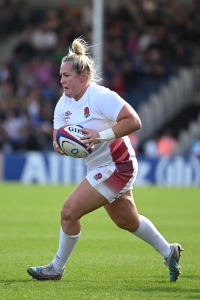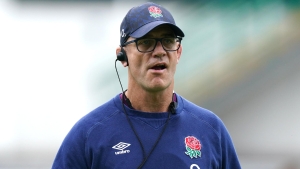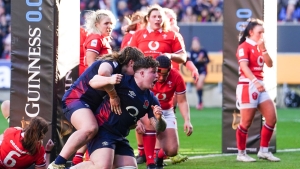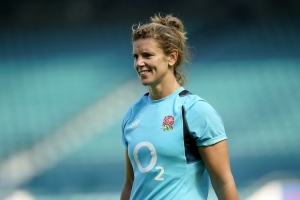England scrum-half Natasha Hunt believes this season’s Guinness Women’s Six Nations could be the most competitive in its 22-year history.
The tournament kicks off on Saturday when France host Ireland in Le Mans and Wales tackle Scotland at Cardiff Arms Park.
England, winners of 14 Six Nations titles and 12 Grand Slams since the tournament began in 2002, launch their campaign against Italy in Parma on Sunday.
The Red Roses’ two home fixtures against Wales and Ireland will be played at Ashton Gate and Twickenham respectively.
Wales’ appointment with Italy on April 27, meanwhile, is their first stand-alone women’s Test at the Principality Stadium, with a possible title decider taking place later that day between France and England in Bordeaux.
England are bidding for a sixth successive Six Nations crown, and the world’s number one-ranked team look like being tough to stop.
Former New Zealand men’s head coach and England assistant John Mitchell is now at the helm, while his support staff includes World Cup winner and 141 times-capped former Red Roses number eight Sarah Hunter.
“I think it could be the most competitive ever,” Hunt, 35, told the PA news agency.
“It took us (England) two or three years to reap the benefits of having our professional contracts, and Scotland and Wales are now in that boat.
“Everyone wants to watch games that go down to the wire so the more competitive the games are, the better it is for the viewer.
“We have got a whole new game-plan, a whole new system that we are trying to implement, and we want to get that right and do what we can to put our best foot forward.”
Mitchell has made several changes from the team that beat New Zealand in the WXV1 final in November, with Emily Scarratt, Abbie Ward and Zoe Harrison among those returning.
Skipper Marlie Packer, meanwhile, becomes the seventh England women’s player to clock up a century of caps.
Hunt, Mitchell’s scrum-half bench option this weekend, was a surprise exclusion from England’s 2022 World Cup squad and the Six Nations presents another opportunity to show her quality after a successful WXV tournament.
“It was quite a shock,” she added, reflecting on her World Cup omission.
“I was at a bit of a crossroads in my career, I guess. At my age, it would have been quite easy to have thought ‘this is it’.
“But I just felt that I had so much more to give. I absolutely love playing for my country, and rugby is the best game ever.
“It did take me a while to consider whether I wanted to put myself back into that environment or not, but when I made that decision that it was something I wanted to go after, I have thrown everything at it.”
Wales full-back Jenny Hesketh will make her Test bow against Scotland, with Rachel Malcolm leading a Scotland team that includes debutant Alex Stewart among her back-row colleagues, while 18-year-old Leinster wing Katie Corrigan wins a first Ireland cap against France.
For the first time in a women’s rugby competition, the bunker system will operate, allowing referees an option to refer incidents of foul play for review when a potential red card is not clear and obvious.
And instrumented mouthguards, which were a feature of the men’s Six Nations this season and are designed to help with identifying a need for head injury assessments and provide in-game alerts to medical teams, will be worn by players throughout the tournament.































